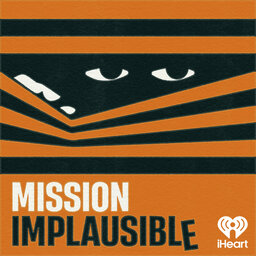Patrick Ewing and the Frozen Envelope (with Chris Ballard)
The 1985 NBA Draft was one of the most controversial in NBA history. How did The New York Knicks land first pick and get Patrick Ewing? Was it rigged? Sports Illustrated writer Chris Ballard might know the answer.
In 1 playlist(s)
Mission Implausible: Ex-CIA Officers on Conspiracy Theories
Do you want to know the truth behind the world’s wildest conspiracy theories? Former CIA officers Jo…Social links
Follow podcast
Recent clips

What Ghislaine Maxwell Knows and Why She’s Being Protected (with Tara Palmeri & Adam Davidson)
33:16

The Hawaiian Cult that raised Tulsi Gabbard (with Christine Gralow)
37:05

Alex Jones and the Conspiracy Economy (with Jordan Holmes)
37:13
 Mission Implausible: Ex-CIA Officers on Conspiracy Theories
Mission Implausible: Ex-CIA Officers on Conspiracy Theories